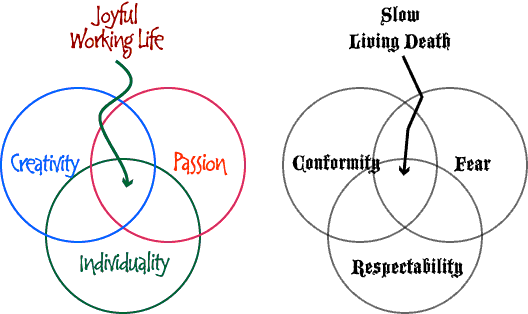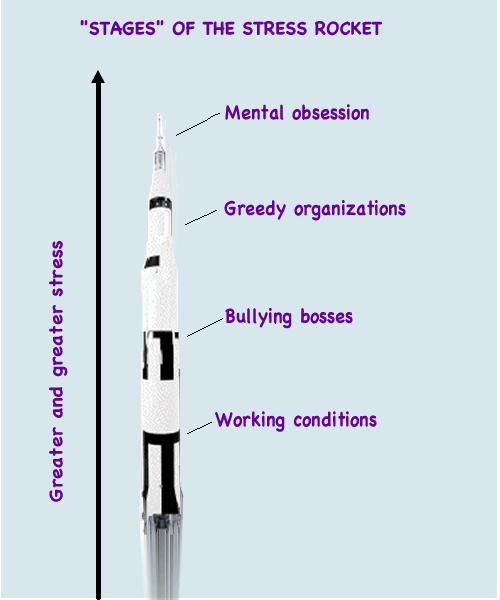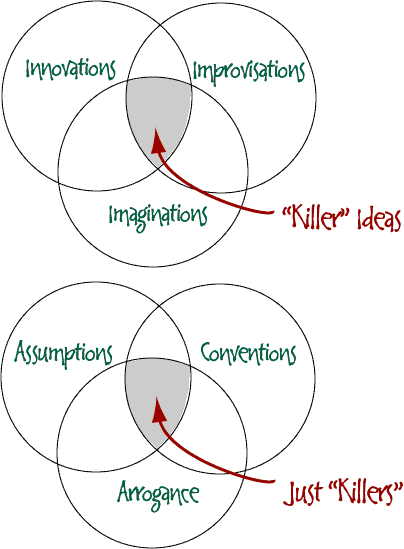Stress-busters: Being more detached
A potent source of stress is taking everything too personally. It’s easy to see criticism as a personal attack, or a setback as some kind of malice aimed directly at you. Neither viewpoint is going to help solve the problem. Both will send your stress levels soaring. Here’s an alternative.I’m writing this article with a sense of trepidation. On previous occasions when I’ve turned to this topic, it’s generated quite amazing levels of abuse from a few people. So I’m going to start with an explanation. It seems that some people equate detachment with emotional coldness, standoffishness, and a kind of superior disdain for normal human feelings. That isn’t what detachment means for me. I’m not suggesting people turn off their feelings (it’s impossible anyway) or adopt some sort of lofty disregard for others. To understand detachment properly, you have to understand attachment first.
The common phrase “I’m attached to it/him/her” may imply liking or love, but people don’t become attached to stress, worry, overwork, obsessive competition, or always being first because they love it. Attachment, in the sense I’m dealing with, means being “stuck on” something. You can’t let go of it, however much it’s hurting you. You’re clinging to it because of some kind of habitual or past emotional bond. Usually these aren’t positive emotions either.
Attachment is an obsession. People half kill themselves with overwork and stress because they believe they must, not because they enjoy it. So . . . to be detached means to be able to step back from events and see them in their proper perspective.
The simplest way to define greater detachment is to see it as the freedom not to be “sucked in” every time—whether that’s into feelings that hurt you, actions that make you feel worse, or responses that don’t help.
Why detachment is desirable
There’s something delightful about being able to stand and look at events and remain in control of your feelings and reactions. If you want to, you can jump in. If you choose not to this time, you can stand aside. It’s your choice. You aren’t at the mercy of an internal “reaction reflex” that is just waiting to be set off by the next setback, the next jerk who pisses you off, or the next unreasonable demand from some idiot on high.You are just you: conscious of what you are choosing and free to act in whatever way seems best to you. You’re in control of yourself and armored against most of the petty irritations that build into a serious stress load.
How to become more detached
Here are some ideas that can help you to become a little more detached; to let your own wishes and thoughts take precedence over the shouts, opinions, and commands from the outside:- Know what is most likely to suck you in. Take some time to consider the patterns in your life. What sets you going? What causes you to “lose it” and do things that you regret later? How can you recognize them before they draw you in? Make a list and memorize it. Then work at avoiding whatever’s on the list.
- Build a habit of pausing and giving yourself time to think. It may take a long time to make this stick, but it will pay huge dividends. Instead of jumping into action, or snapping out a response, say or do something neutral: “I’d like to think about that a moment,” or “Let me get back to you on that one.” Buy yourself time to get past your first response and start considering the options. Try to make more conscious choices whenever you can.
- Build a new self-image. Instead of being someone who’s quick to react or speak, start seeing yourself as the quiet person who rarely jumps in first, but who everyone listens to when he or she does say something. At first it will seem false and theatrical. But if you stick at it, it will mix with the rest of your personality and produce a new, calmer, more influential, and more popular you.
- When you feel your emotions on the boil and your hackles rising, ask yourself whether what you believe at that moment is really true. Force yourself to stop and question your beliefs and feelings fully. You’ll be surprised how often you discover that you’re all fired up by something you’re assuming, something you’ve been told (on what authority?), or something that isn’t even real.
- Watch others. See how simple it is for people to get sucked in—and how easily they’re manipulated as a result. Watch how a simple, trivial situation is turned into a drama, then a Hollywood disaster epic. Consider whether that’s how you want to live.
- Ask yourself whether what you’re doing right now is your own choice, or the result of being sucked in by something that you’ve got hooked on. Notice how each one feels. Compare stress and frustration levels. Decide whether you want to be swept along or make your own decisions.
Being more detached means giving yourself more space and time to be aware. It means freeing yourself from compulsions that don’t serve your best interests. It means being master or mistress of your own mind, controlling your emotions, and choosing your actions with care. And it means only accepting the amount of stress that you are willing to suffer, instead of what events or other people want to unload onto you.
Labels: enjoying work, self-preservation, slow leadership, stress, stress-busters


















